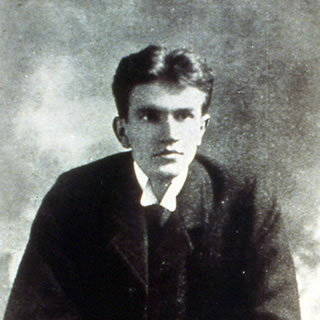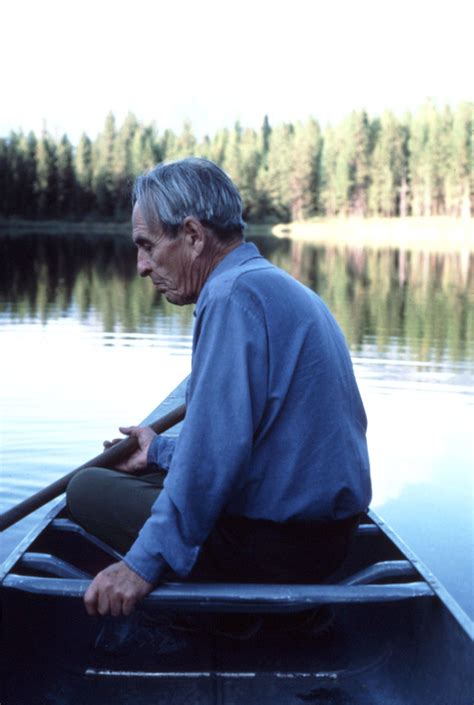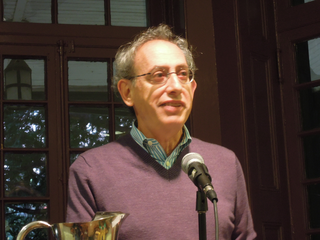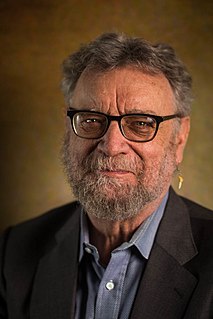A Quote by W.N.P. Barbellion
The porter spends his days in the Library keeping strict vigil over this catacomb of books, passing along between the shelves and yet never paying heed to the almost audible susurrus of desire- the desire every book has to be taken down and read, to live, to come into being in somebody's mind. He even hands the volumes over the counter, seeks them out in their proper places or returns them there without once realising that a Book is a Person and not a Thing.
Related Quotes
The book is a uniquely durable object, one that can be fully enjoyed without being damaged. A book doesn't require fuel, food, or service; it isn't very messy and rarely makes a noise. A book can be read over and over, then passed on to friends, or resold at a garage sale. A book will not crash or freeze and will still work when filled with sand. Even if it falls into the bath, it can be dried out and finished. Books require no special training to operate.
He is no true reader who has not experienced the reproachful fascination of the great shelves of unread books, of the libraries at night of which Borges is the fabulist. He is no reader who has not heard, in his inward ear, the call of the hundreds of thousands, of the millions of volumes which stand in the stacks of the British Library asking to be read. For there is in each book a gamble against oblivion, a wager against silence, which can be won only when the book is opened again (but in contrast to man, the book can wait centuries for the hazard of resurrection.)
When I write, I aim in my mind not toward New York but to a vague spot a little to the east of Kansas. I think of the books on library shelves, without their jackets, years old, and a countryish teen-aged boy finding them, and having them speak to him. The review, the stacks in Brentano's, are just hurdles to get over, to place the books on that shelf.
It takes me about a week and a half to read the typical book. I don't know how many ten-day spans I have left. Eventually the unread books on my shelves will have to be abandoned, or they will join me on the pyre. The book I'm about to purchase may be among them. We all buy books we won't live to read.
In America there's a tendency to write the same book over and over because that's what sells. So in a way, my success in America has come at the expense of what I do. I haven't sold out, and I haven't taken the popular road to writing a best-selling book. I've really bucked the system. So it was necessary for me not to go and find the easy fans, the ones who want something digestible and fast with a happy ending that they can read over and over again no matter how many different books it is. I had to find fans who really wanted to think. Worldwide they all have that in common.
I'm constantly snatching my books out of the hands of precocious ten-year-olds who are simply too young to read them, despite parents insisting that dear Octavia has a reading age of 28. I remember trying to read 'In Cold Blood' at the age of twelve, and realising that just because you can read book doesn't mean you should.
Every few seconds a new book sees the light of day. Most of them will just be a part of the hum that makes us hard of hearing. Even the book is becoming an instrument of forgetting. A truly literary work comes into being as its creator's cry of protest against the forgetting that looms over him, over his predecessors and his contemporaries alike, and over his time, and the language he speaks. A literary work is something that defies death.
The face of the water, in time, became a wonderful book- a book that was a dead language to the uneducated passenger, but which told its mind to me without reserve, delivering its most cherished secrets as clearly as if it uttered them with a voice. And it was not a book to be read once and thrown aside, for it had a new story to tell every day.
I attempt to read one book every day. I don't always achieve that, especially when I'm traveling. But when I'm home, I read almost a book a day. I certainly read a minimum of two or three a week. And as a result of that, I've read over 3,000 books in areas that interest me, like consciousness and spirituality, holistic health, leadership, success, psychological awareness, therapy, etc.
One day I would have all the books in the world, shelves and shelves of them. I would live my life in a tower of books. I would read all day long and eat peaches. And if any young knights in armor dared to come calling on their white chargers and plead with me to let down my hair, I would pelt them with peach pits until they went home.
You see? Characters in books do not read books. Oh, they snap them shut when somebody enters a room, or fling them aside in disgust at what they fancy is said within, or hide their faces in one which they pretend to peruse while somebody else lectures them on matters they'd rather not confront. But they do not read them. 'Twould be recursive, rendering each book effectively infinite, so that no single one might be finished without reading them all. This is the infallible message of discovering on which side of the page you are on.
To understand oneself requires patience, tolerant awareness; the self is a book of many volumes which you cannot read in a day, but when once you begin to read, you must read every word, every sentence, every paragraph for in them are the intimations of the whole. The beginning of it is the ending of it. If you know how to read, supreme wisdom is to be found.
[D]on't ever apologize to an author for buying something in paperback, or taking it out from a library (that's what they're there for. Use your library). Don't apologize to this author for buying books second hand, or getting them from bookcrossing or borrowing a friend's copy. What's important to me is that people read the books and enjoy them, and that, at some point in there, the book was bought by someone. And that people who like things, tell other people. The most important thing is that people read.


































